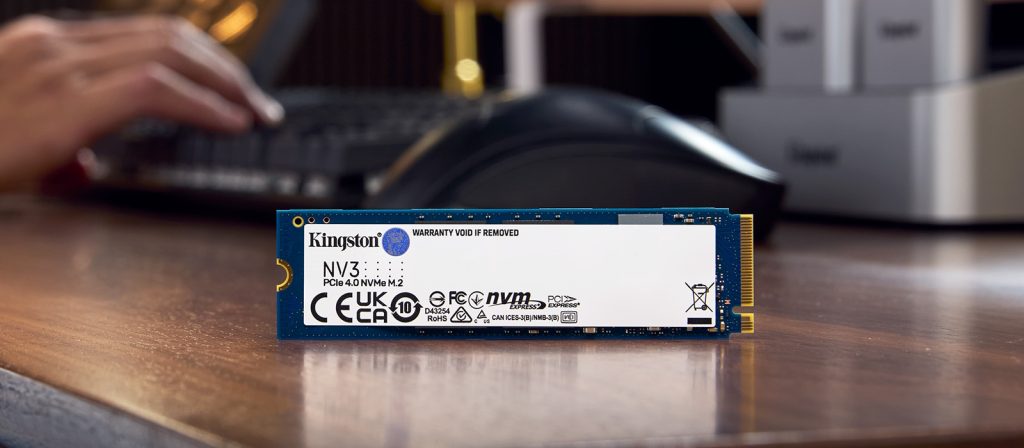Kingston's NV2 NVMe SSD has been a common choice for budget-conscious consumers, delivering up to 4TB of storage and decent performance for an affordable price. Kingston recently unveiled its successor, the NV3, touting several upgrades over its predecessor.
Kingston plans to launch 500GB, 1TB, and 2TB NV3 models initially, with a 4TB version expected to join the NV3 lineup in Q4 of this year. No details on the controller and NAND type for the NV3 have been disclosed, but Kingston states the new SSD series brings a bump in sequential read speeds.

The 1TB and higher capacity NV3 SSDs have rated sequential read speeds of 6,000MB/s, significantly improving over the NV2's 3,500MB/s. Additionally, write speeds for the 2TB and 4TB NV3 models max out at 5,000MB/s, doubling the speed of the NV2 models. As for the 1TB NV3 SKU, write speeds have nearly doubled compared to the NV2, now rated at 4,000MB/s. Lastly, the 500GB NV3 has more conservative speed enhancements, but it still receives a noteworthy uplift, bumping the sequential read speed to 5,000MB/s and the sequential write speed to 3,000MB/s.
Endurance ratings for the NV3 remain consistent with those of the NV2. They start at 160 TBW for the 500GB variant and double with each capacity increment, capping at 1280 TBW for the 4TB drive. Kingston has yet to share the release date, but online retailers are already advertising availability within four to five days. Pricing seems to start at $50 for the 500GB drive, climbing to $70 for the 1TB model and $139 for the 2TB variant. A three-year warranty backs each of these SSDs.
Discuss on our Facebook page, HERE.
KitGuru says: Although slightly pricier than its predecessor, the NV3 promises to be considerably faster, and that might be enough to justify getting the newer model over the older one.
 KitGuru KitGuru.net – Tech News | Hardware News | Hardware Reviews | IOS | Mobile | Gaming | Graphics Cards
KitGuru KitGuru.net – Tech News | Hardware News | Hardware Reviews | IOS | Mobile | Gaming | Graphics Cards


